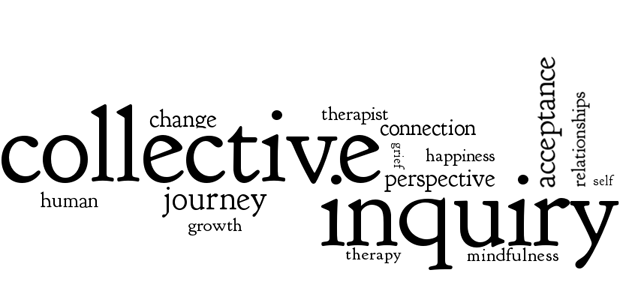

As I write my posts, share my story, or make myself vulnerable, I find myself naturally wanting to weave in a lesson or a silver lining. Because that’s what I do. I try to find the best in people and I try to learn from everything. Even in my hardest, most raw and painful moments, I can feel myself growing and stretching the limits of what I can endure. I can already identify how I will come out stronger, how this experience will shape me, and this (like all other things) will eventually pass me by.
Truthfully, that recognition is a double-edged sword. It’s good to learn from struggle, but in the depths of struggling I have found myself resenting the “lesson” because I wished I didn’t have to learn it the hard way. Sometimes I need to put aside the need to search for a higher meaning, look at the bigger picture, or discover the reason why this must all be happening Instead, I need to just feel, or not feel.
I call this the trap of “self-therapizing.” At times looking within while wearing a “therapist hat” can lead to great insight. But when overused I start to feel like if I come up with one more analyzation of my thoughts or behaviors, I will lose not just myself, but lose the art of living in the moment. If that’s not how I typically conduct therapy sessions with clients, then why I am pressing this type of thinking on myself?
As soon as I begin to intellectualize and compartmentalize my actions I gain distance from it and am not talking about myself, but about a stranger or a friend. I find the words to gain less and less meaning and that they act as a cover for what I already know, if I were to just be quiet enough. I lose the feeling I am trying to describe and left feeling frustrated.
In a previous post, through the help of a reader, I recognized the value of having a friend or therapist helping you uncover what is sometimes lost due to this distance. Sometimes, this person can be yourself. But if you’re like me and sometimes fall into “self-therapizing,” you may be sacrificing the actual living and experiencing of life to the one that exists in your mind and in your words.
Furthermore, while the ability to view experiences in a positive manner can be extremely helpful to moving forward, it should not be at the expense of giving the experience the moment it deserves. I did not recognize the act of putting on a positive spin as harmful until I was in the heat of a story describing a very recent and painful time of losing a friend. My roommate interrupted me by reaching over and gently laying her hand on my arm. She looked me in the eye and said, “I can see the therapist in you come out– I can see you now analyzing everything and trying to be positive. You don’t always have to be.”
She got me. She saw that I took something personal and deep and rationalized it in a way that took the edge off the the pain. In all the blur and stream of words flowing from my mouth, the underlining ones were short and simple. I was hurting and I was confused. Everything else was secondary.
That experience was a reminder to give myself permission to feel without having the need to explain, know why it was there, or link it to something beneficial. There will be a time for that, but it doesn’t have to be immediate. Maybe soon I’ll see that what makes me sad will benefit me in the long run, but it is okay if in the moment, it seems like it has no benefits. It feels like human nature to want to comfort others or the self by assuring that things happening for a reason, but it’s okay too, to not be ready to hear or believe that.
Sometimes things just happen and the best you can do is get through the day.
Share your thoughts
No Thoughts About The Risk of “Self-Therapizing.”